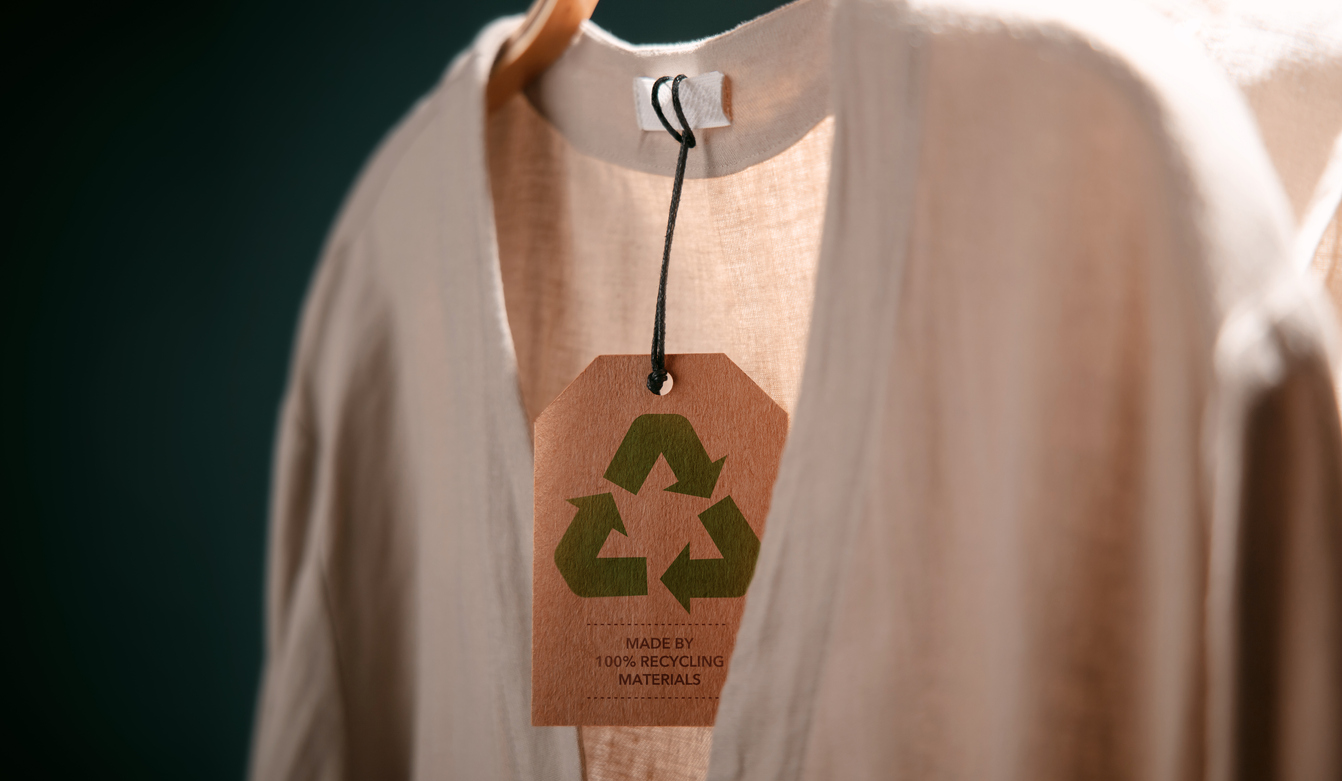How Cape Town Sustainable Fashion is Forming Eco-Conscious Buying
How Cape Town Sustainable Fashion is Forming Eco-Conscious Buying
Blog Article
Remain Ahead of the Contour by Checking Out Cutting-edge Style Fads
In a sector as vibrant as style, remaining in advance involves even more than simply following existing trends-- it demands an exploration of advancement. The convergence of modern technology and fashion proclaims a brand-new era of customer involvement.

Welcoming Smart Textiles
In current years, the fashion industry has witnessed a transformative shift with the assimilation of smart fabrics, a sophisticated development that blends innovation with fabric. This advancement represents not just a blend of looks and functionality however also a significant leap towards sustainability and personalization in vogue. Smart fabrics, additionally referred to as e-textiles, installed sophisticated electronic devices such as sensing units and conductive threads within the textile, enabling garments to communicate with the wearer or the setting.
These fabrics are developed to monitor physiological specifications, such as heart price or body temperature level, giving real-time health and wellness analytics. Beyond health applications, smart textiles are also being used for adaptive apparel, which can transform shade or pattern in reaction to ecological stimuli, therefore providing a dynamic fashion experience.
Additionally, the growth of energy-harvesting textiles that create power from movement or sunshine is paving the method for self-sufficient wearable technology. This advancement is interesting environmentally aware customers and developers aiming to reduce the ecological impact of fashion. As r & d in this field breakthrough, wise fabrics are anticipated to become significantly widespread, improving the landscape of modern fashion with their multifunctional capabilities.
The Surge of 3D Printing
Changing the manufacturing landscape, 3D printing has emerged as a game-changer in the garment industry. This advanced technology has actually allowed developers to push the limits of creative thinking, generating detailed and tailored garments that were formerly unthinkable. By leveraging electronic style and additive manufacturing, 3D printing helps with the production of complex geometries and patterns, permitting designers to experiment with brand-new textures and frameworks.
A remarkable benefit of 3D printing in vogue is its ability to generate on-demand, minimizing waste and decreasing inventory needs. This efficiency not just optimizes production processes however additionally enables quick prototyping, enabling designers to bring their visions to life in a much shorter timeframe. In addition, 3D printing sustains customization to a level unmatched by typical methods, offering unique designs and individualized fits customized to private consumer choices.
The increase of 3D printing has actually also equalized style, making it easily accessible to emerging designers who can currently produce high-quality items without considerable monetary investment in traditional production framework. As technology continues to development, the style market is positioned to harness the full capacity of 3D printing, exploring brand-new materials and techniques that will most certainly redefine how style is conceived and created.
Lasting Style Advancements
As the fashion sector faces the pressing demand for environmental duty, sustainable fashion technologies have emerged at the leading edge of transformative adjustment. The growing awareness of environmental impact has sustained a change towards more eco-conscious methods and products. Brand names and developers are currently focusing on sustainability, integrating methods that lessen waste and minimize carbon footprints.
One substantial development is the surge of round style, which stresses recycling and upcycling to extend the lifecycle of garments. This approach not just reduces waste but additionally motivates customers to embrace a much more conscious method to clothes consumption. In addition, the use of sustainable products, such as organic cotton, hemp, and recycled polyester, has gained grip. These materials require less water and power throughout manufacturing, significantly reducing environmental influence.
One more development depends on the fostering of innovative dyeing techniques that utilize all-natural dyes find out or waterless processes, thus lowering the huge quantities of water and chemicals typically made use of in fabric dyeing. In addition, innovations in biotechnology have brought about the creation of lab-grown leather and fabrics, using cruelty-free and ecologically pleasant alternatives to conventional materials. With these introducing efforts, the garment industry is making meaningful strides towards an extra lasting future.

Tech-Integrated Garments
Tech-integrated clothing represents a revolutionary combination of style and innovation, reshaping how people engage with their apparel. This ingenious domain name is noted by the inclusion of wise fabrics and embedded digital parts, improving both functionality and aesthetic charm. From fitness trackers installed in sportswear to heated jackets managed using smart device apps, tech-integrated clothing supplies consumers unmatched convenience and versatility.
Pioneering brands are driving this fad, concentrating on producing garments that respond to ecological stimulations or customer commands. For instance, some garments can alter shade or pattern in response to temperature level shifts, while others integrate biometric sensors to monitor health and wellness metrics like heart rate or stress and anxiety levels. The seamless combination of technology into fabrics likewise encompasses environmental sustainability, with efforts to develop self-cleaning textiles or garments that readjust to climate condition, hence minimizing the need for numerous layers.
Moreover, the development of wearable technology is not simply restricted to garments yet reaches devices like watches and eyeglasses, additional broadening the extent of tech-integrated fashion. As the market continues to innovate, the potential for personalization and personalization in clothing expands, using customers special, tech-enhanced style experiences that accommodate their private needs and preferences.
Future of Virtual Fashion
In recent times, the future of virtual fashion has actually become a transformative force within the industry, leveraging improvements in digital innovation to redefine how style is developed, experienced, and consumed. By incorporating increased truth (AR), virtual truth (VR), and 3D design tools, designers can currently craft interactive and immersive experiences that go beyond standard fashion limits. Virtual style enables the production of garments that exist exclusively in digital atmospheres, offering limitless possibilities for technology without the limitations of physical manufacturing.
This electronic shift not only provides opportunities for imaginative expression but additionally my website addresses sustainability issues integral in standard fashion techniques. Cape Town Sustainable Fashion. By removing the requirement for physical resources, virtual style decreases waste and lessens carbon footprints. Moreover, the increase of digital fashion lines up with the boosting customer need for customized and unique experiences, as digital garments can be personalized and tailored to individual preferences effortlessly

Final Thought
The fashion market's future depend on the combination of ingenious modern technologies and lasting methods - Cape Town Sustainable Fashion. Smart textiles and tech-integrated apparel are boosting performance, while 3D printing offers opportunities for customization and waste decrease. Sustainable fashion, with eco-friendly materials and round methods, demonstrates a see page commitment to ecological stewardship. Furthermore, digital style is poised to redefine consumer interactions. Adjusting to these patterns is necessary for brands looking for to stay competitive and appropriate in this rapidly progressing landscape.
In recent years, the fashion market has witnessed a transformative change with the combination of wise textiles, an advanced advancement that mixes innovation with material.As the style sector grapples with the pressing requirement for ecological responsibility, sustainable fashion developments have actually arised at the center of transformative change.In recent years, the future of online style has actually arised as a transformative pressure within the sector, leveraging innovations in digital technology to redefine exactly how style is developed, experienced, and taken in. The rise of virtual style straightens with the raising customer demand for unique and personalized experiences, as virtual garments can be tailored and tailored to individual choices with convenience.
The fashion industry's future lies in the integration of lasting methods and cutting-edge innovations.
Report this page